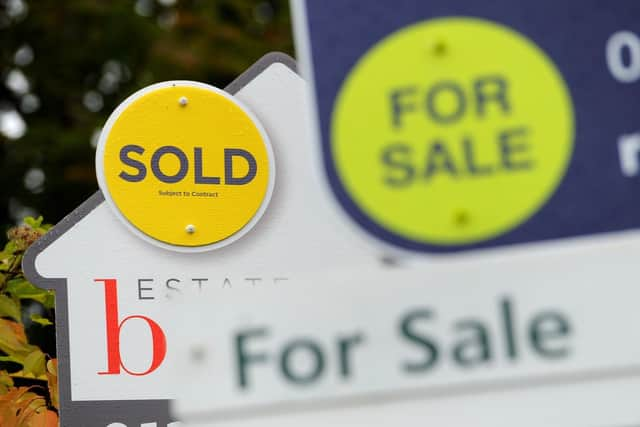Families paying £500 more a month on mortgages than they were a year ago, Labour Party claims
The average term of a mortgage loan hit a record of 30 years in June, while many banks pulled mortgages and interest rates soared following September's mini-budget.
Lisa Nandy MP, shadow levelling up secretary, said many families will be paying higher mortgages for years to come "because the Conservatives crashed the economy".
Advertisement
Hide AdAdvertisement
Hide AdLabour has laid the blame with Lix Truss's "disastrous premiership", arguing that a family mortgage on the average property is £537 a month more it was 12 months ago.


Ms Nandy said: "This is a Tory crisis, made in Downing Street and being paid for by working people. Tens of thousands of households will be paying higher mortgage bills for years to come because the Conservatives crashed the economy.
"Despite the U-turns, the damage has been done," she added. "Even now, families are still paying more because the Government has lost all credibility. The Tories simply cannot be trusted with the economy. Only Labour offers the leadership and ideas to get Britain out of this mess, which is why we need a general election now."
As banks pulled mortgages last month and interest rates rose, homeowners in Yorkshire spoke of their fears for the winter ahead as costs mount.
Advertisement
Hide AdAdvertisement
Hide AdFather-of-two Tariq Ghumman, of Wakefield, said he was already facing £100 a month more on his mortgage bill.


He said: "We’re struggling to pay our bills, everything is rising. We can’t cut back anymore. We feel vulnerable and are trying to hide it from our kids. If it continues like this, I’ll have to stop paying my mortgage and see what the bank does.”
The economy has rebounded somewhat following the mini-budget, but polling last week found that if mortgage payments increased in the next year, 45 per cent of people said that they would have to make “large cuts” to household spending.
The current average price of a property in the UK has now been estimated at £295,903.
Advertisement
Hide AdAdvertisement
Hide AdLabour's analysis applies the median loan-to-value ratio for mortgage sales in the UK, which is 70 per cent. For the average property therefore, the mortgage would be £207,132.
The annual interest rates on October 20 2020 was 2.25 per cent, while this October 22 it was 6.65 per cent, Labour said - equating to a monthly increase of £537.96. Over two years this would be an extra £12,911.06, according to Labour's figures.
UK Finance expects 1.8m people to remortgage next year, which is just over a quarter of all mortgages.
Responding to Labour's analysis, a Treasury spokesperson said: "Growth requires confidence and stability. A central responsibility for any government is to do what is necessary for economic stability, and we have done so. But the UK's long-term economic prospects remain positive as we deliver our mission for growth, and according to the IMF the UK is on course to have the fastest growth in the G7 this year."